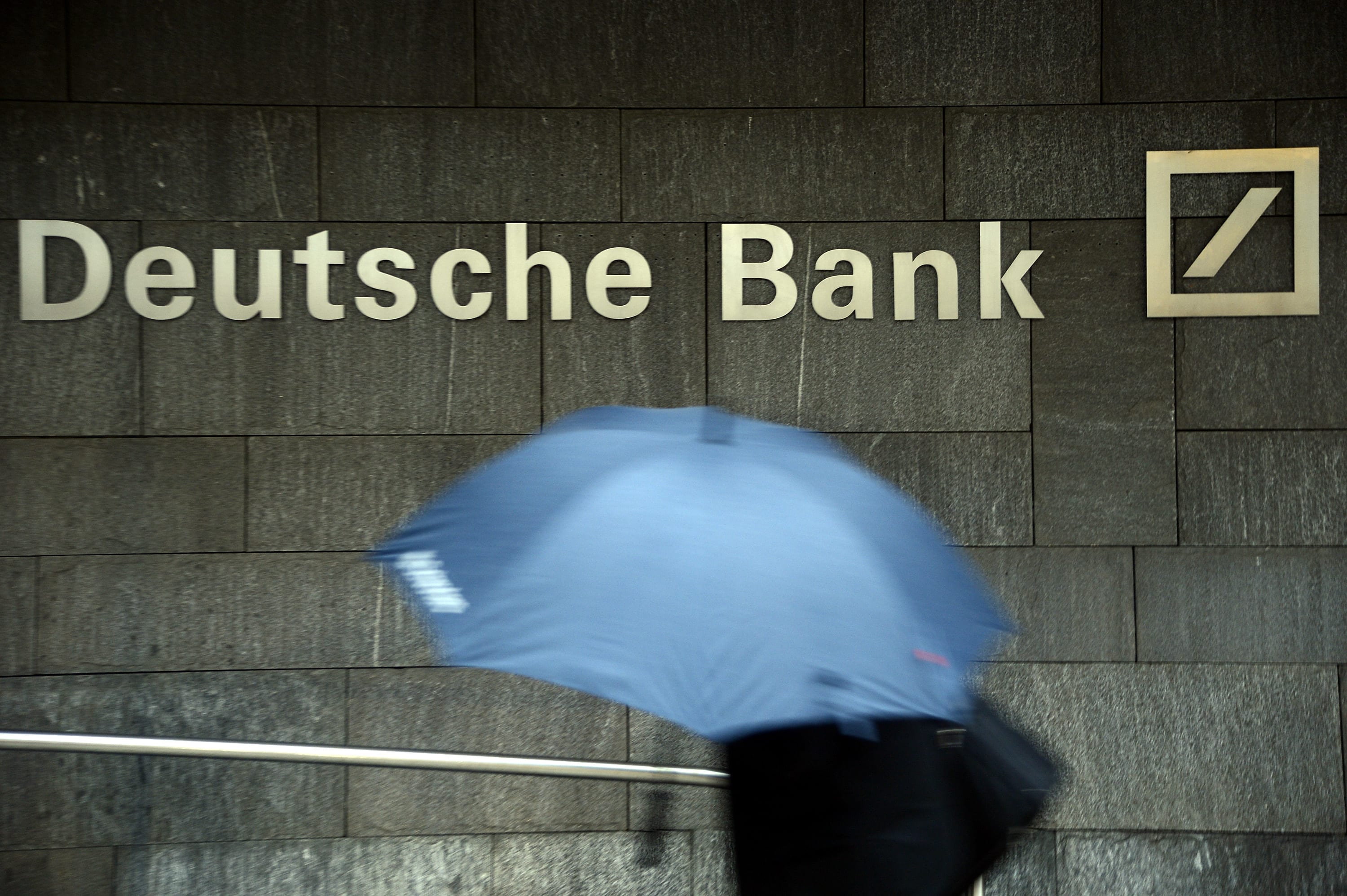
A pedestrian with a umbrella walks pass a logo of Deutsche Bank in Frankfurt am Main, Germany.
Thomas Lohnes | Getty Images
SINGAPORE — Germany’s largest lender, Deutsche Bank, appears to have facilitated more than half of the $2 trillion of suspicious transactions that were flagged to the U.S. government over nearly two decades, German broadcaster Deutsche Welle reported.
The documents showed that between 1999 and 2017, $1.3 trillion of $2 trillion in leaked transactions that were flagged as suspicious passed through Deutsche Bank, according to DW.
The leaked documents contained suspicious activity reports that banks and other financial institutions filed with the U.S. Department of Treasury’s Financial Crimes Enforcement Network, or FinCEN. Financial firms are required by law to alert regulators when they detect activities that may be suspicious, such as money laundering or sanctions violations. Such reports are not necessarily evidence of any criminal conduct.
In a statement posted on its website, the German bank said the incidents in the leaked documents “have already been investigated and led to regulatory resolutions in which the bank’s cooperation and remediation was publicly recognized. Where necessary and appropriate, consequence management was applied.”
It also said that it has “devoted significant resources to strengthening our controls” and “are very focused on meeting our responsibilities and obligations.”
Deutsche Bank has previously been found to facilitate financial transactions that violate U.S. sanctions. In 2015, Deutsche Bank agreed to pay fines worth $258 million for doing business with U.S.-sanctioned countries including Iran, Syria, Libya, Sudan and Myanmar, according to DW. But the leaked FinCEN documents suggested that the bank had continued to move suspicious funds after that 2015 settlement, the report said.
Read more about Deutsche Bank’s suspicious transactions in the report by Deutsche Welle.
Clarification: The headline in this article has been updated to make clearer that Deutsche Bank had the most suspicious transactions specifically among those leaked from the U.S. Financial Crimes Enforcement Network.
Source: CNBC
